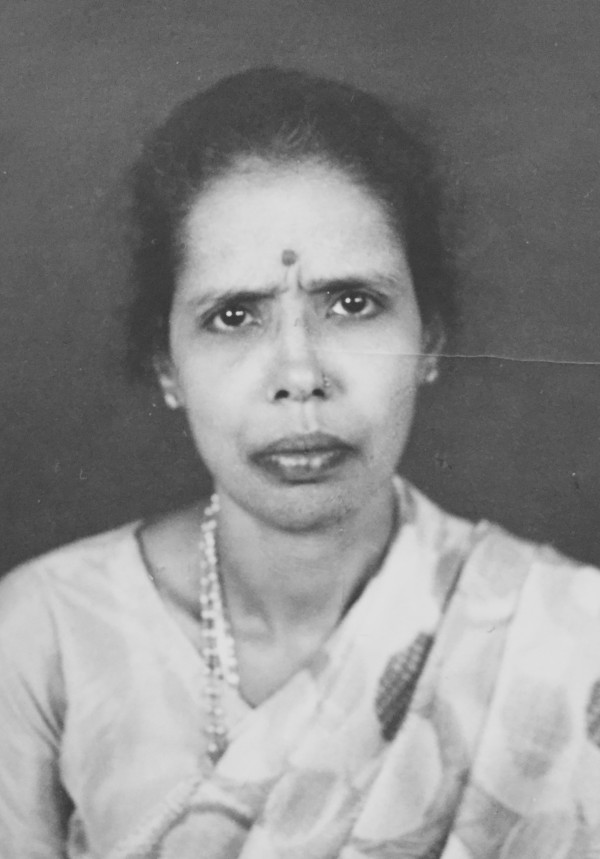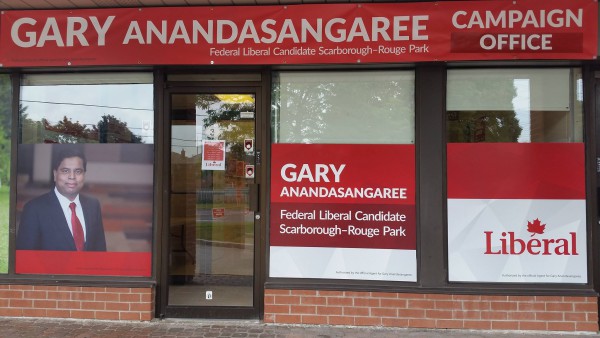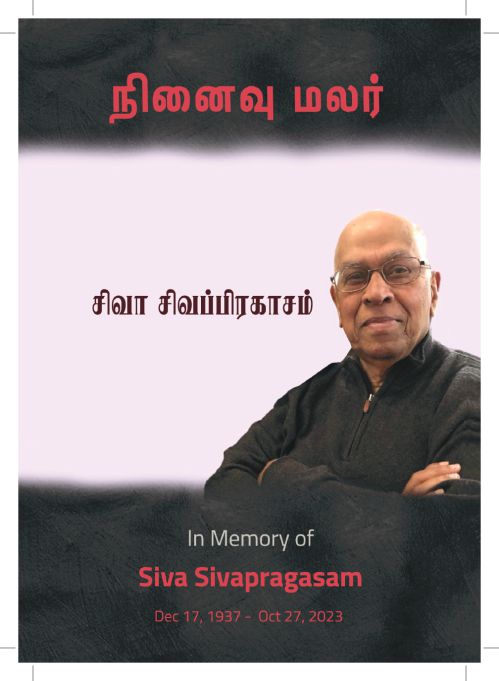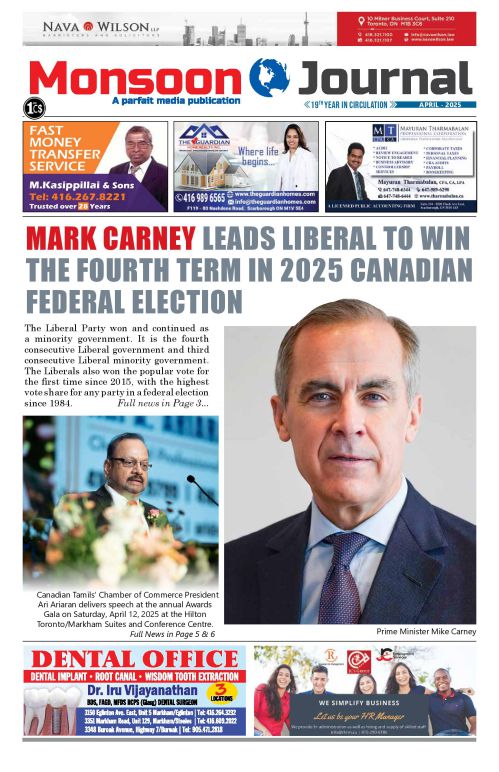
Tent set up to welcome PM Modi – pic: twitter.com-Maya Mirchandani
India will not succumb to any pressure internally from Tamil Nadu or externally from Tamil Diaspora
By Ramasamypillai Thambyah Ramachandran
I was in Jaffna on a short visit myself and saw the preparations made for the visit to Jaffna by Indian Prime Minister Narendra Modi. I saw firsthand the temporary reception hall being put up along coastal Ponnalai-Point Pedro Road at Irrupalai, where the Prime Minister was to hand over houses built with Indian assistance to some displaced families and for the first time the City streets were cleaned and washed to receive the Indian Prime Minister.
Also was pleased to see the armed forces doing their normal duties of providing security than taking over civilian tasks like working on construction sites, maintenance of public parks and in providing services in hotels. Thus the people of Jaffna were ready in gratitude to give a warm welcome to the prime minister, who has assured a big brotherly and neighbourly support to fuel the wind of change that is blowing in the country.
In contrast to the bilateral visit to Sri Lanka by then Indian Prime Minister Rajiv Gandhi, this visit was a very successful and friendlier event for both countries. This cordiality should have existed three decades ago when India openly extended its arms to assist us with the national question and then could have avoided the bloody war that caused all the loss of life, permanent injuries to people, loss and damages to properties, it also killed then Prime Ministers of both countries among others.
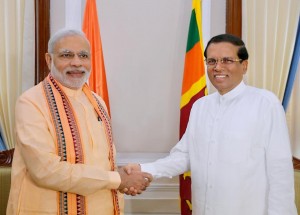
Prime Minister Modi with President Maithripala Sirisena
By now, the people of Sri Lanka must realize that India will not succumb to any pressure internally from Tamil Nadu or externally from Tamil Diaspora, but will assist us in anyway it can to resolve the ethnic problem as long as its regional and strategic interests are protected. It is up to the Sri Lankan state to ensure its people that with Indian intervention shall cause no loss to Sovereignty and that process would enhance the economic activities of the island nation.
These include the development of the Tank Farm Installation of the China Bay, which would help to make Trincomalee, a regional petroleum hub in the near future. Indian assistance to Sampur Coal Power Plant project would help to meet energy needs of the country.
Those who travel by train would welcome the fresh line of credit for the railway sector that would help to procure rolling stock, and to restore and upgrade existing railway track of Indian make of course. Assistance to stabilize the Sri Lankan Rupee is a good agreement expected from this visit. The promise to find a long term solution to the complex fishermen???s issue is another matter considered during the talks. The facility of providing tourist visa on arrival is encouraging to improve relationships. Respecting Sri Lankan Buddhist heritage is also a positive move to improve the tie between the two countries.
All in all it should be beneficial to the country and should help the change of wind to advance Sri Lanka towards peace, reconciliation and progress, provided the extremists at the center and peripheries of all colour and shades, both in the government and in the opposition, in the country and outside are helped to accept reality and they all be accommodated into the process. It is hoped that the devolution of power in the country would be without concurrent list and the district secretariats of each province coming under the control of the respective provincial council. In all districts of the country the Divisional Secretariat shall be combined with respective Pradesh Sabah retaining its elected body.
India has been involved in Sri Lankan matters since 1983. The 1987 Indo-Lanka peace accord resulted in the 13th Amendment to the constitution. As expected Prime Minister Modi has said that India would support Sri Lanka in its efforts to build a future that accommodates the aspirations of all sections of society, including those of the Tamil minority, for a life of equality, justice, peace and dignity in a united Sri Lanka. He has stressed the need to going beyond full implementation of the 13th Amendment to reach a durable solution to the ethnic problem of the country.
It is accepted by all political parties in the country that the present arrangement regarding power sharing is not complete. A possible way to resolve this stalemate, would be that Northern Province be extended to include areas in the Eastern Province to form a single province for the Tamils with the balance of the Eastern Province forming a province for the Muslims, while Sinhala areas of North and East Provinces be attached to the respective neighbouring Provinces.
Let us hope following the thrust given by Indian Prime Minister Modi that in due course a permanent solution will be found for sharing power of governance.






